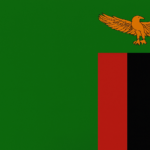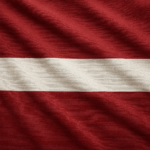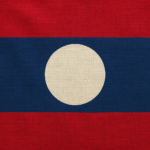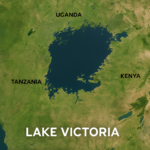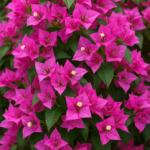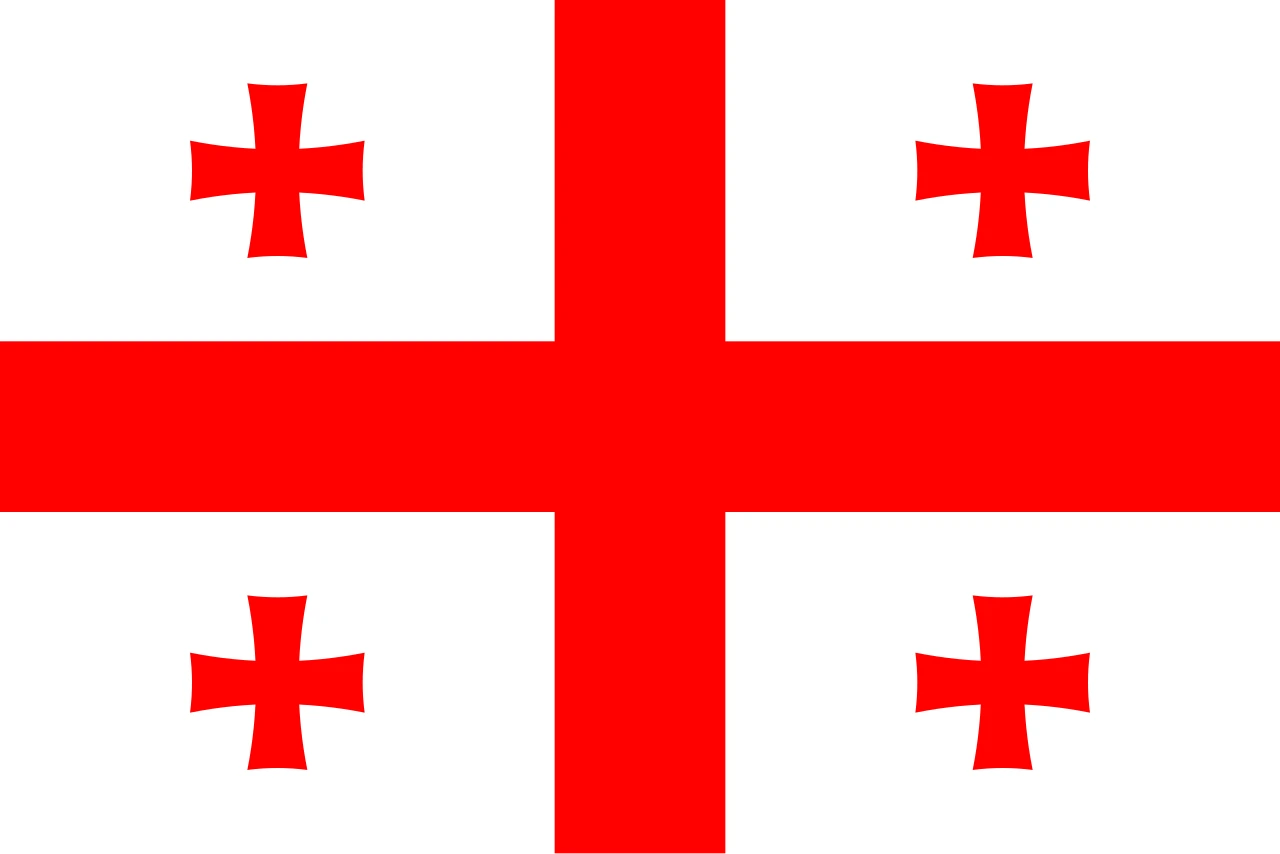
Georgia, a country at the crossroads of Eastern Europe and Western Asia, is rich in history, culture, and natural beauty. Known for its diverse landscapes, from the majestic peaks of the Caucasus Mountains to the picturesque Black Sea coastline, Georgia offers a unique blend of ancient traditions and modern influences. With a vibrant capital city, Tbilisi, and a wealth of cultural heritage, this fascinating nation is a treasure trove of experiences waiting to be explored. Here are some intriguing facts about Georgia that highlight its distinct character and charm.
Capital: Tbilisi is not only the capital of Georgia but also its largest city, with a population of approximately 1.1 million people. Nestled in a valley along the banks of the Kura River, Tbilisi is known for its diverse architecture that reflects its long history of various cultural influences, including Persian, Ottoman, and Soviet. The city’s old town features narrow cobblestone streets, vibrant houses with wooden balconies, and historic churches. Tbilisi serves as the political, cultural, and economic heart of Georgia, hosting numerous museums, theaters, and galleries.
Independence: Georgia’s declaration of independence from the Soviet Union on April 9, 1991, marked a significant turning point in its history. This move followed a series of political reforms and growing nationalist sentiments within the country. The declaration was a culmination of years of struggle against Soviet control, which had been in place since the early 1920s. The day is now commemorated annually as a national holiday, symbolizing Georgia’s quest for sovereignty and self-determination, despite facing challenges in the years that followed, including civil unrest and territorial conflicts.
Language: The official language of Georgia is Georgian, a unique and ancient language that belongs to the Kartvelian language family. Georgian has its own script, which is one of the oldest alphabets still in use today, with origins tracing back to the 5th century AD. The language is notable for its complex phonetics and rich literary tradition, with a significant body of literature dating back to the medieval period. Georgian is not only a means of communication but also a key component of national identity, and efforts are ongoing to preserve and promote the language in the face of globalization.
Area: Covering an area of about 69,700 square kilometers (26,911 square miles), Georgia is located at the crossroads of Eastern Europe and Western Asia. The country’s diverse geography includes the Greater Caucasus mountain range to the north, which features some of the highest peaks in Europe, and the Black Sea coastline to the west. This varied landscape supports a wide range of ecosystems, from lush forests and alpine meadows to arid plains. The country’s strategic location has historically made it a melting pot of cultures and a crucial trade route.
Population: As of 2021, the estimated population of Georgia is around 3.7 million people. The population is ethnically diverse, with Georgians making up the majority, followed by significant minorities including Armenians, Azerbaijanis, and Russians. The population density is approximately 53 people per square kilometer (137 per square mile), with a higher concentration in urban areas like Tbilisi. The demographics of Georgia have been influenced by historical migrations, conflicts, and economic factors, leading to a rich tapestry of cultural practices and traditions throughout the country.
Longest River: The Rioni River, approximately 327 kilometers (203 miles) long, is the longest river in Georgia. It originates in the Racha region of the Greater Caucasus mountains and flows through several towns and cities before emptying into the Black Sea. The river plays a vital role in the local ecosystem and economy, providing water for agriculture and serving as a transportation route. The Rioni River valley is known for its picturesque landscapes, vineyards, and historical sites, making it a popular destination for both locals and tourists.
Wine Production: Georgia is recognized as one of the oldest wine-producing regions in the world, with evidence of viticulture dating back over 8,000 years. Archaeological findings in the region have revealed ancient winemaking tools and clay vessels, known as qvevri, used for fermentation and storage. Georgian wine is celebrated for its unique varieties, many of which are indigenous to the country, such as Saperavi and Rkatsiteli. The country’s winemaking traditions are deeply embedded in its culture, and wine is often associated with hospitality and social gatherings.
UNESCO Sites: Georgia is home to three UNESCO World Heritage Sites. The Historical Monuments of Mtskheta, which includes ancient churches and a monastery, represents the spiritual heart of Georgia and its early Christian heritage. The Upper Svaneti region is known for its medieval stone towers, which served as both homes and defensive structures, showcasing the region’s unique architecture and cultural traditions. The Gelati Monastery, founded in the 12th century, is renowned for its stunning mosaics and frescoes, reflecting the artistic achievements of the medieval period.
Currency: The Georgian Lari (GEL) is the official currency of Georgia, introduced in 1995 to replace the Russian ruble following the country’s independence. The Lari is subdivided into 100 tetri, and its symbol is ₾. The currency has undergone various fluctuations since its introduction, influenced by economic reforms and changes in the global market. The Lari is crucial for everyday transactions in Georgia, and its stability is closely monitored by the National Bank of Georgia. The currency reflects national symbols and figures, with banknotes showcasing important historical personalities and landmarks, further instilling a sense of national pride among Georgians.
Longest River: The Rioni River, approximately 327 kilometers (203 miles) long, is the longest river in Georgia. It originates in the Racha region of the Greater Caucasus mountains and flows through several towns and cities before emptying into the Black Sea. The river plays a vital role in the local ecosystem and economy, providing water for agriculture and serving as a transportation route. The Rioni River valley is known for its picturesque landscapes, vineyards, and historical sites, making it a popular destination for both locals and tourists. The river also supports a variety of aquatic life, contributing to the region’s biodiversity, and has been a source of inspiration for local folklore and traditions.
National Animal: The national animal of Georgia is the Caucasian Shepherd Dog, known for its strength, loyalty, and protective nature. This breed has been used for centuries as a guard dog, particularly in rural areas where it protects livestock from predators such as wolves and bears. The Caucasian Shepherd is a large, powerful dog, often weighing between 50 to 100 kilograms (110 to 220 pounds) and standing about 64 to 75 centimeters (25 to 30 inches) tall at the shoulder. Its thick fur coat provides protection against harsh weather conditions, and the breed is revered in Georgian culture for its bravery and companionship.
Highest Waterfall: The highest waterfall in Georgia is the Khone Waterfall, which cascades down approximately 100 meters (328 feet) in the Samegrelo region. This stunning natural site is located near the town of Khoni and is known for its breathtaking beauty, especially during the spring when snowmelt increases the water flow. The surrounding area is rich in biodiversity, with lush vegetation and unique wildlife. Khone Waterfall is a popular destination for both locals and tourists, offering opportunities for hiking, photography, and enjoying the serene natural environment.
Oldest City: Tbilisi, founded in the 5th century AD, is one of the oldest cities in the region and has a rich history that reflects the diverse influences that have shaped it. The city was strategically located on the Silk Road, making it a cultural and commercial hub for centuries. Tbilisi’s architecture showcases a mix of styles, including medieval, neoclassical, and modern designs, with notable landmarks such as the Narikala Fortress and the Tbilisi Sioni Cathedral. The city has been a focal point of Georgian culture, politics, and religion, and continues to be a vibrant center for arts, music, and gastronomy.
Population Density: Georgia has a population density of approximately 53 people per square kilometer (137 per square mile), which varies significantly between urban and rural areas. The majority of the population resides in cities, particularly Tbilisi, where the density is much higher. This demographic distribution has led to urbanization challenges, including housing, infrastructure, and transportation. In contrast, rural areas often experience depopulation as younger generations migrate to cities for better opportunities. The population density reflects the country’s diverse geography, with mountainous regions having lower populations compared to fertile plains and urban centers.
Cultural Heritage: Georgia has a rich cultural heritage, boasting over 1,500 unique folk songs and dances that reflect its history and traditions. These performances are often characterized by vibrant costumes, intricate choreography, and powerful vocal techniques. The traditional music of Georgia is recognized for its polyphonic singing, which has been passed down through generations. Festivals celebrating this cultural heritage, such as the Tbilisi International Folklore Festival, highlight the importance of preserving these artistic expressions. The country’s diverse cultural practices are a source of pride for Georgians and play a crucial role in maintaining their national identity.
Famous Poet: One of Georgia’s most famous poets is Shota Rustaveli, who authored “The Knight in the Panther’s Skin” in the 12th century. This epic poem is considered a cornerstone of Georgian literature and reflects the ideals of chivalry, love, and honor. Rustaveli’s work is celebrated for its rich language, philosophical depth, and exploration of the human experience. The poem has been translated into numerous languages and remains an essential part of Georgia’s cultural heritage. Rustaveli is often regarded as a national hero, and his legacy continues to inspire generations of writers, artists, and scholars in Georgia and beyond.
National Cuisine: Khinkali, a type of dumpling, is one of the most popular traditional dishes in Georgia. These dumplings are typically filled with spiced meat (often a mix of beef and pork) and broth, making them a flavorful and hearty meal. Khinkali are usually served with black pepper and eaten by hand, with diners encouraged to savor the broth inside. The dish is emblematic of Georgian hospitality and is often enjoyed during family gatherings and celebrations. Khinkali is just one example of Georgia’s rich culinary tradition, which includes other famous dishes like khachapuri (cheese-filled bread) and various stews and salads.
Climate: Georgia’s climate is notably diverse, influenced by its varied topography and geographical location. The western part of the country experiences a humid subtropical climate characterized by warm summers and mild winters, making it ideal for agriculture and lush vegetation. In contrast, the eastern region has a continental climate, which features hotter summers and colder winters. This climatic variation contributes to the rich agricultural diversity found throughout the country, enabling the cultivation of a wide range of crops and the production of famous Georgian wines.
Largest City: Tbilisi, the capital city of Georgia, is not only the political and cultural heart of the nation but also its largest city, housing approximately 30% of the country’s total population. With a rich history that dates back to the 5th century, Tbilisi is known for its unique architecture that blends Eastern and Western influences, vibrant arts scene, and bustling streets. The city’s diverse neighborhoods reflect its multicultural heritage, making it a fascinating destination for both locals and tourists alike.
Svaneti Region: The Svaneti region, nestled in the Greater Caucasus mountains, is renowned for its medieval stone towers, many of which date back to the 9th century. These towers, built as defensive structures, are a testament to the region’s rich history and unique architectural style. Svaneti is also recognized as a UNESCO World Heritage site, attracting visitors with its breathtaking landscapes, traditional villages, and opportunities for hiking and mountaineering. The region’s cultural heritage is preserved through its ancient customs, language, and music, making it a vital part of Georgian identity.
Black Sea Coast: Georgia boasts a stunning coastline along the Black Sea that stretches approximately 310 kilometers (193 miles). This coastal region is known for its picturesque beaches, subtropical climate, and lush greenery, making it a popular destination for both domestic and international tourists. Cities like Batumi, with its modern architecture and vibrant nightlife, and the charming town of Kobuleti, known for its sandy shores, are key attractions. The Black Sea coast also plays an important role in Georgia’s economy through tourism and fishing.
Religious Heritage: Approximately 83% of Georgians belong to the Georgian Orthodox Church, which has played a significant role in shaping the nation’s identity and culture. The church’s history dates back to the early Christian period, and it remains a central institution in Georgian society. The country is home to numerous ancient churches and monasteries, many of which are architectural marvels. Celebrations and religious holidays are deeply embedded in the cultural fabric of Georgia, showcasing the enduring influence of the Orthodox faith on the nation’s traditions and values.
Most Expensive City: Tbilisi is considered the most expensive city in Georgia regarding living costs, yet it remains relatively affordable compared to many Western cities. The cost of housing, dining, and entertainment in Tbilisi can vary significantly, with some areas being more upscale and others offering budget-friendly options. Despite being the economic center of the country, Tbilisi’s cost of living is often seen as a bargain for expatriates and travelers, thanks to its rich cultural offerings, affordable public transportation, and vibrant local markets.
Biodiversity: Georgia is recognized for its rich biodiversity, hosting over 3,000 species of plants and 400 species of vertebrates. The country’s varied ecosystems range from alpine meadows to subtropical forests, supporting a wide array of flora and fauna. This biodiversity is particularly significant in protected areas like the Greater Caucasus National Park and the Kolkheti National Park, where unique species thrive. The preservation of Georgia’s natural habitats is crucial for maintaining its ecological balance and supporting the livelihoods of local communities.
Cultural Festivals: The Tbilisi Jazz Festival is an annual highlight in the city’s cultural calendar, attracting international artists and celebrating the vibrant genre of jazz music. This festival has gained recognition for showcasing both renowned musicians and emerging talents, fostering a love for jazz among locals and tourists alike. The event features a variety of performances, workshops, and jam sessions, creating an inclusive atmosphere for music lovers. The Tbilisi Jazz Festival not only enriches the cultural landscape of the city but also promotes Georgia as a hub for artistic expression and creativity.
Frequently Asked Questions About Georgia
Geography and History
- What is the capital of Georgia?
- Tbilisi is the capital of Georgia.
- What is the official language of Georgia?
- Georgian is the official language of Georgia.
- When did Georgia become independent from the Soviet Union?
- Georgia declared its independence from the Soviet Union on April 9, 1991.
- What is the Caucasus region?
- The Caucasus region is a mountainous area between the Black Sea and the Caspian Sea, encompassing Georgia, Armenia, Azerbaijan, and parts of Russia.
Culture and Society
- What is the main religion in Georgia?
- The majority of Georgians are Christian, primarily belonging to the Georgian Orthodox Church.
- What is Georgian cuisine known for?
- Georgian cuisine is renowned for its diverse dishes, including khachapuri (cheese-filled bread), khinkali (dumplings), and satsivi (chicken in walnut sauce).
- What are some famous Georgian traditions or festivals?
- Some famous Georgian traditions include Supra (a traditional feast with toasts), and festivals like the Tbilisoba (Tbilisi Festival).
Travel and Tourism
- Is Georgia a safe country for tourists?
- Georgia is generally considered a safe country for tourists. However, it’s always advisable to exercise caution and be aware of your surroundings, especially in crowded areas.
- What is the best time to visit Georgia?
- The best time to visit Georgia depends on your preferences. Spring (April-June) and autumn (September-November) offer pleasant weather for exploring historical sites and enjoying outdoor activities. Summer (June-August) is ideal for beach holidays and hiking in the mountains. Winter (December-February) is popular for skiing and snowboarding.
- What are some must-see attractions in Georgia?
- Some must-see attractions in Georgia include the historical city of Tbilisi, the ancient cave city of Vardzia, the mountainous region of Svaneti, and the Black Sea coast.
- What is the visa policy for Georgia?
- Visa requirements for Georgia vary depending on your nationality. Many countries can visit Georgia without a visa for short stays. It’s essential to check the latest visa information before your trip.
Economy and Politics
- What is Georgia’s economy primarily based on?
- Georgia’s economy is primarily based on agriculture, tourism, and services.
- What is the currency of Georgia?
- The currency of Georgia is the Georgian Lari (GEL).
- What is the political system of Georgia?
- Georgia is a parliamentary republic.
